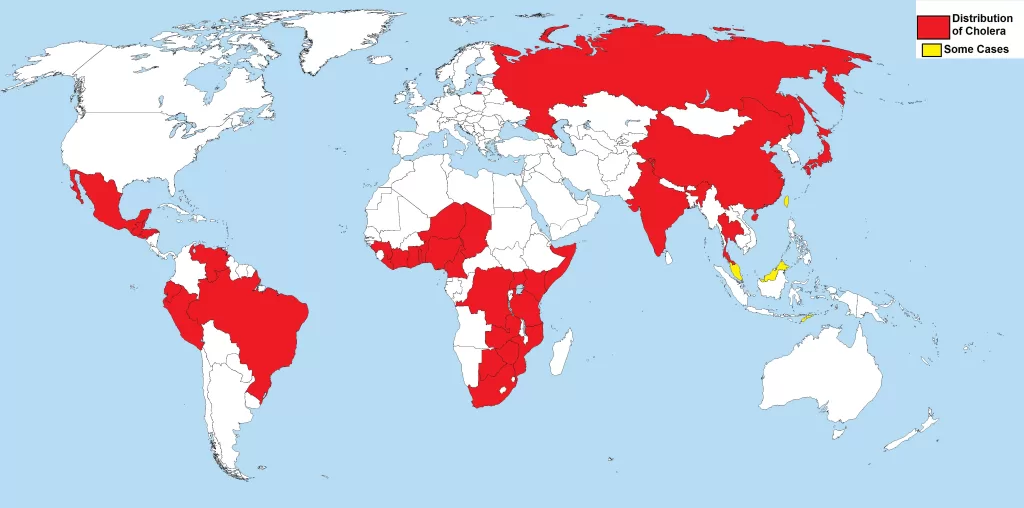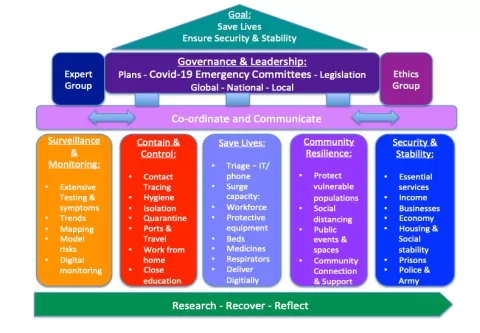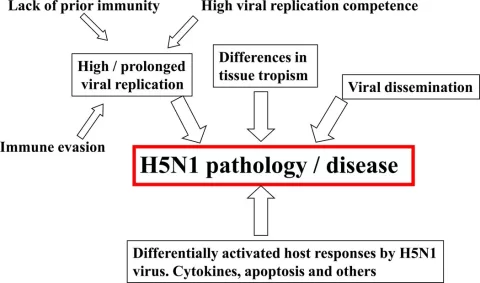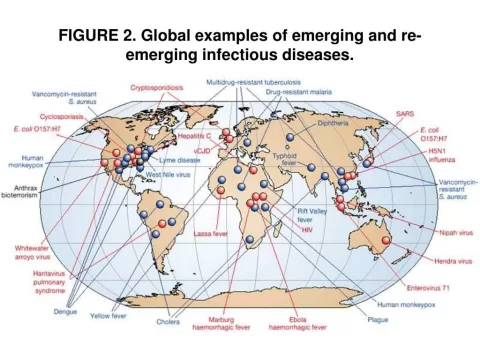Cholera outbreaks have become a pressing public health concern in Africa, with alarming increases in cases and fatalities reported this year. The Africa Centres for Disease Control and Prevention (Africa CDC) is convening an emergency consultative group to address this urgent issue, drawing on successful strategies gained from its mpox response initiatives. By enhancing healthcare systems in Africa and focusing on vital elements like water sanitation and cholera vaccination, the initiative seeks to curb the spread of this devastating disease. As cholera remains a significant threat, especially in conflict-affected regions like Sudan, the necessity for immediate and effective action is paramount. Collaborative efforts, informed by past lessons, will be critical to mitigating the impact of cholera outbreaks across the continent.
In the ongoing battle against severe gastrointestinal diseases, cholera outbreaks represent a critical challenge affecting numerous nations, particularly in Africa. This bacterial infection, which primarily spreads through contaminated water sources and inadequate sanitation, has sparked a call for improved health responses similar to those implemented for the mpox virus. Vaccination campaigns, such as those seen in Sudan, aim to protect vulnerable populations, especially children, while simultaneous enhancements in water and sanitation infrastructure can significantly diminish cholera transmission. As healthcare systems in Africa strive to overcome historical deficiencies, the lessons learned from prior infectious disease outbreaks will guide future initiatives. The urgency of tackling cholera lies in its potential to escalate in areas already burdened by insecurity and conflict.
Understanding Cholera Outbreaks in Africa
Cholera outbreaks have been a significant public health issue in Africa, with a notable surge in reported cases this year. The Africa CDC has reported alarming statistics indicating that these outbreaks are on pace to exceed previous totals from 2023 and 2024. This concerning trend highlights the need for a robust response strategy to mitigate the impact of cholera on vulnerable populations. The urgency to act is amplified by the interplay of factors such as inadequate water and sanitation facilities and the ongoing effects of humanitarian crises in several affected regions.
The Africa CDC’s emergency consultative group is currently formulating a continental strategy aimed at combating these cholera outbreaks. Utilizing lessons learned from the mpox response, the strategic approach emphasizes partnerships and collaboration with various stakeholders, including international health organizations and local communities. Additionally, addressing infrastructural challenges through water sanitation improvements is crucial in reducing the spread of cholera and protecting the health of communities across the continent.
Lessons from Mpox Response Applied to Cholera Management
The Africa CDC’s recent experiences managing the mpox crisis have provided invaluable insights into handling cholera outbreaks effectively. By focusing on building strong partnerships across different sectors, such as healthcare systems and community engagement, a more cohesive approach could lead to better outcomes in fighting cholera. Furthermore, the emphasis on local manufacturing of essential medical supplies, including cholera vaccines, is a vital aspect that can enhance the region’s preparedness and response capacity.
Lessons learned from the mpox scenario underscore the importance of timely surveillance and data collection, which are also pivotal in controlling cholera spread. The need for comprehensive response efforts to tackle healthcare system weaknesses involves enhancing local capacities, improving water sanitation measures, and implementing effective vaccination campaigns. By integrating these lessons into cholera management strategies, healthcare providers can adopt a more proactive and effective stance against future outbreaks.
The Role of Water Sanitation in Preventing Cholera
Safe water and proper sanitation are paramount in the fight against cholera, as the disease is primarily transmitted through contaminated water. Overwhelming evidence shows that improving water sanitation in cholera-prone areas significantly reduces incidence rates. In tandem with vaccination efforts, enhanced sanitation measures can mitigate the risks of outbreaks, especially in regions grappling with conflicts and poor health infrastructure.
Investments in water and sanitation infrastructure are essential for sustainable health outcomes. Initiatives aimed at constructing clean water supply systems and promoting hygiene education among communities are critical components that can help to curb cholera’s spread. The Africa CDC emphasizes the integration of water sanitation strategies with health interventions for a holistic approach, ensuring that all factors contributing to cholera are systematically addressed.
Challenges in Cholera Management Due to Conflict
Conflict exacerbates the cholera situation in many African countries, particularly in hotspots such as Sudan and the Democratic Republic of the Congo. These regions experience not only the immediate effects of war but also the long-term consequences on healthcare systems, leading to increased vulnerability to cholera. As communities are displaced and vital services collapse, the risk of waterborne diseases rises, highlighting the urgent need for comprehensive emergency response strategies that factor in security conditions.
In such conflict-affected areas, humanitarian access becomes critical yet often restricted, presenting significant barriers to delivering essential health services, including vaccination and sanitation projects. Therefore, managing cholera outbreaks within these contexts requires innovative solutions and robust partnerships between healthcare providers and humanitarian organizations. These collaborations can facilitate the implementation of cholera vaccines and bolster health-supporting infrastructure where it is most needed.
Vaccination Initiatives Against Cholera in Sudan
The cholera vaccination campaign in Sudan has gained momentum, with UNICEF reporting the distribution of over 1.6 million oral cholera vaccines to curb the outbreak ravaging the country. This initiative is particularly crucial as Sudan grapples with a spike in cholera cases amidst ongoing conflict and humanitarian challenges. Vaccination serves as a frontline defense against the disease and is essential to protecting the most vulnerable groups, including children under five who are at heightened risk.
However, the challenges surrounding vaccination in conflict zones cannot be overstated. Access to at-risk populations is often hindered by insecurity and logistical constraints, making sustained immunization efforts difficult. Therefore, it is imperative that health authorities, alongside the Africa CDC and partner organizations, work to establish safe corridors for vaccine delivery and enhance community outreach to educate the population about the benefits of vaccination against cholera.
Improving Healthcare Systems to Combat Cholera
Strengthening healthcare systems is vital for effectively tackling cholera outbreaks across Africa. This involves not only improving access to healthcare services but also ensuring that existing facilities are adequately equipped to manage cholera cases. The Africa CDC is aware that addressing the root causes of cholera, such as poor infrastructure and lack of resources, will be a multi-faceted challenge that requires ongoing investment and strategic planning.
In addition to physical improvement of healthcare facilities, investing in healthcare workers’ training and support is equally important. Ensuring that medical personnel are well-equipped with knowledge on cholera management, including prevention and treatment protocols, will improve patient outcomes and response times during outbreaks. A focus on developing local expertise can help build resilient healthcare systems that are better prepared for future public health challenges.
The Importance of Surveillance in Cholera Prevention
Effective surveillance systems are crucial for early detection and containment of cholera outbreaks. They enable health authorities to monitor the spread of the disease, identify high-risk areas, and implement timely interventions. The Africa CDC’s initiative to enhance surveillance capabilities integrates lessons learned from previous outbreaks, emphasizing the role of data collection and reporting as essential elements in informed decision-making.
Moreover, leveraging technology in surveillance can significantly enhance the response to cholera outbreaks. Utilizing mobile health solutions and digital reporting can facilitate real-time data collection, enabling swift action at the community level. By engaging local health workers and community leaders in surveillance efforts, public health officials can foster a sense of ownership and ensure that data reflects the true state of cholera outbreaks in the region.
Community Engagement in Cholera Education
Community involvement is a cornerstone of effective cholera prevention strategies. Engaging local leaders and stakeholders in cholera education initiatives ensures that messaging resonates with the communities most affected by the disease. The Africa CDC advocates for grassroots efforts to empower communities to take proactive measures in cholera prevention, emphasizing the importance of hygiene, sanitation, and safe water practices.
Community health programs can also foster a deeper understanding of the cholera vaccination process, dispelling myths and reinforcing the vaccine’s role in safeguarding public health. By building trust and facilitating open dialogues, health authorities can cultivate a culture of prevention that not only reduces the risk of cholera outbreaks but also strengthens overall community health resilience.
The Future of Cholera Control in Africa
As Africa faces the ongoing challenge of cholera outbreaks, the future of control measures will depend on collaborative strategies and sustained efforts. The lessons learned from the mpox response provide a foundation for innovative and resilient healthcare approaches that can be adapted to combat cholera. By focusing on comprehensive strategies that include vaccination, water sanitation, and healthcare system strengthening, Africa can build a solid framework for managing epidemic threats.
Additionally, the integration of technology into public health initiatives, along with increased investment in health infrastructure and community involvement, is essential for long-term cholera control. Establishing a unified approach to health crises across the continent will not only tackle cholera but also enhance preparedness for future epidemics, ultimately leading to healthier communities across Africa.
Frequently Asked Questions
What measures is the Africa CDC taking to respond to cholera outbreaks in Africa?
The Africa CDC is utilizing a unified response model to address cholera outbreaks by strengthening healthcare systems, enhancing surveillance, and facilitating local manufacturing of cholera vaccines. This approach builds on successful strategies learned from the mpox response.
How is the cholera situation in Sudan being addressed amid ongoing conflicts?
The cholera outbreak in Sudan, particularly in Khartoum state, is being tackled with significant support, including the delivery of over 1.6 million oral cholera vaccines by UNICEF. Efforts focus on vaccination, improving water and sanitation, and addressing humanitarian crises arising from conflict.
What impact does water sanitation have on cholera outbreaks in Africa?
Poor water sanitation is a crucial factor exacerbating cholera outbreaks in Africa. The Africa CDC emphasizes the need for improved water and sanitation infrastructure to control cholera, especially in regions like Angola and the DRC, where such conditions contribute to high infection rates.
What lessons from the mpox response are being applied to combat cholera outbreaks?
The Africa CDC is applying lessons from the mpox response, particularly the significance of collaboration among partners, to enhance the fight against cholera outbreaks. This includes coordinating efforts for healthcare improvements and urgent vaccination initiatives.
Which countries in Africa are currently experiencing the worst cholera outbreaks?
The countries experiencing the most severe cholera outbreaks this year include Angola, the Democratic Republic of the Congo, Sudan, and South Sudan, collectively accounting for a vast majority of the reported cases and deaths.
What role does the healthcare system play in managing cholera outbreaks in Africa?
A robust healthcare system is essential for managing cholera outbreaks in Africa. The Africa CDC is focusing on strengthening these systems to ensure better disease surveillance, prompt response, and effective treatment options for affected populations.
How does insecurity contribute to cholera outbreaks in regions like the DRC and Sudan?
Insecurity significantly worsens cholera outbreaks by disrupting access to clean water, healthcare services, and sanitation facilities. In the DRC and Sudan, ongoing conflicts displace populations, hinder relief efforts, and lead to deteriorating living conditions that facilitate the spread of cholera.
What are the primary symptoms of cholera that communities should be aware of?
Communities should be aware that cholera symptoms include severe diarrhea, vomiting, and dehydration. Quick recognition and treatment are critical to managing cholera outbreaks effectively and preventing deaths.
What initiatives are in place to promote cholera vaccination in Africa?
Initiatives to promote cholera vaccination in Africa include collaborative efforts by organizations such as UNICEF and the Africa CDC, which have implemented vaccination campaigns, particularly in high-risk areas like Sudan, aiming to immunize vulnerable populations.
Why is Africa CDC focused on improving sanitation to control cholera outbreaks?
The Africa CDC believes that improving sanitation is vital for controlling cholera outbreaks because inadequate sanitation directly contributes to the transmission of the disease. Enhancing these services is crucial for long-term cholera management.
| Key Points | Details |
|---|---|
| Emergency Consultative Group Meeting | An Africa CDC group is meeting to discuss a continental strategy to combat cholera outbreaks. |
| Surge in Cases | Cholera cases in Africa are projected to exceed the totals from 2023 and 2024. |
| Lessons from Mpox | Africa CDC will apply successful strategies from mpox response to cholera, including healthcare system strengthening and enhanced surveillance. |
| Main Hot Spots | Angola, DRC, Sudan, and South Sudan account for 83% of cholera cases and 92% of deaths. |
| Sudan’s Situation | Over 7,700 cholera cases reported in Sudan, with severe humanitarian impacts due to conflict. |
| Vaccine Efforts | UNICEF has delivered over 1.6 million oral cholera vaccines to Sudan for immunization. |
Summary
Cholera outbreaks are currently a pressing concern, as Africa experiences a substantial rise in cases across several nations. The Africa CDC is actively convening to strategize on combating cholera, utilizing learned experiences from previous infectious disease outbreaks, such as mpox. The joint efforts from multiple health organizations are crucial in addressing not only the immediate public health needs but also the underlying issues like sanitation and conflict that exacerbate cholera’s impact.
The content provided on this blog (e.g., symptom descriptions, health tips, or general advice) is for informational purposes only and is not a substitute for professional medical advice, diagnosis, or treatment. Always seek the guidance of your physician or other qualified healthcare provider with any questions you may have regarding a medical condition. Never disregard professional medical advice or delay seeking it because of something you have read on this website. If you believe you may have a medical emergency, call your doctor or emergency services immediately. Reliance on any information provided by this blog is solely at your own risk.








